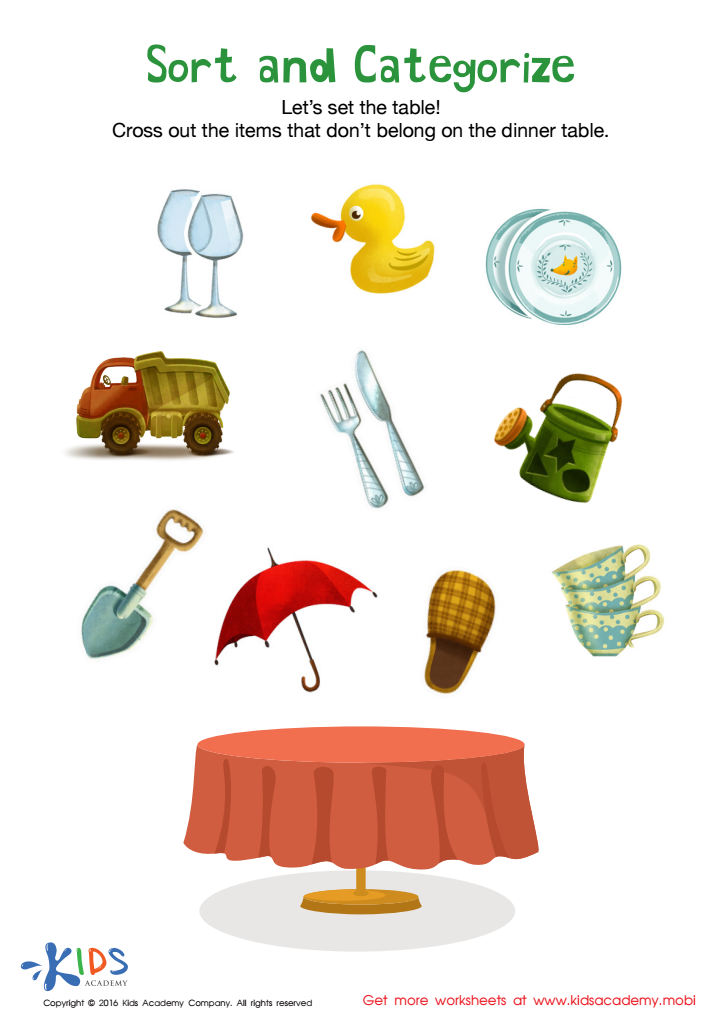Shape Recognition Matching Worksheets for Ages 5-9
8 filtered results
-
From - To
Enhance your child's learning with our Shape Recognition Matching Worksheets designed for ages 5-9. These engaging and interactive worksheets help young learners develop essential shape identification skills through fun matching exercises. Children will enjoy recognizing and connecting shapes while improving their concentration and fine motor skills. The colorful designs and playful activities make learning enjoyable and effective, fostering a love for math in early childhood. Perfect for home or classroom use, these worksheets provide an excellent resource for reinforcing foundational concepts in a creative way. Download now to ignite your child's passion for shapes and build their confidence in mathematics!
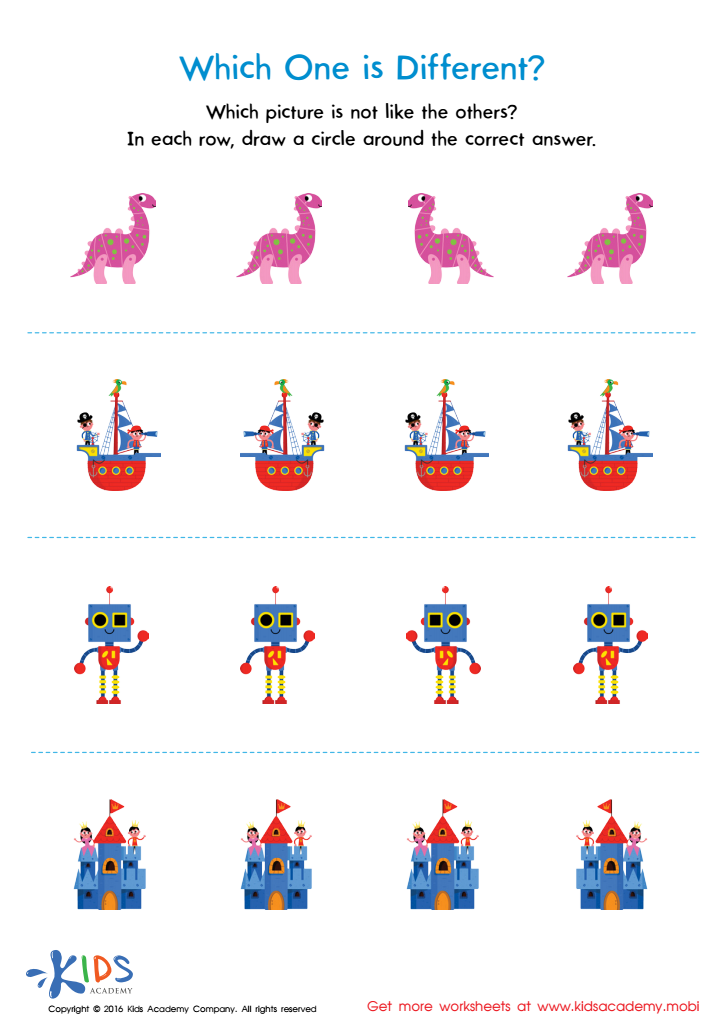

Which One Is Different Worksheet
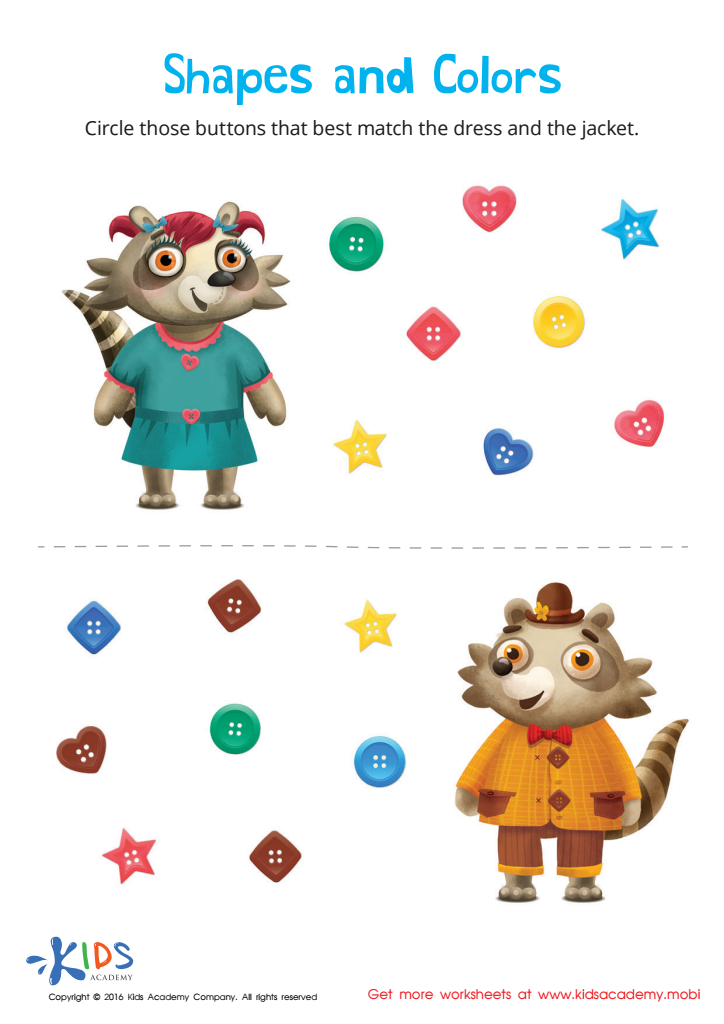

Matching: Shapes and Colors Worksheet
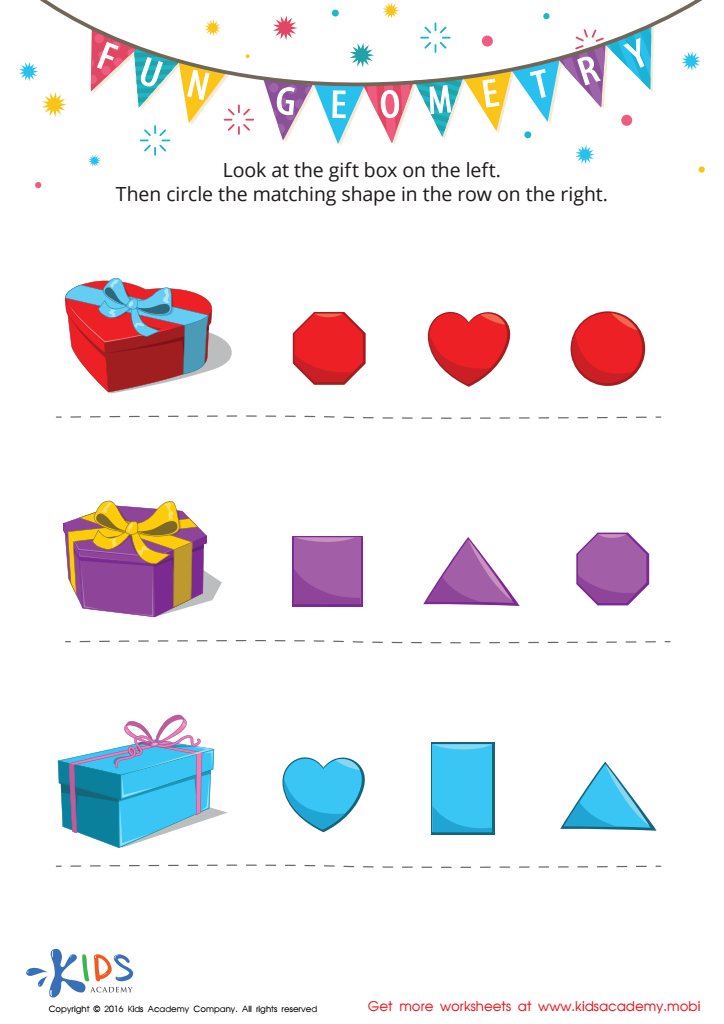

Fun Geometry Worksheet
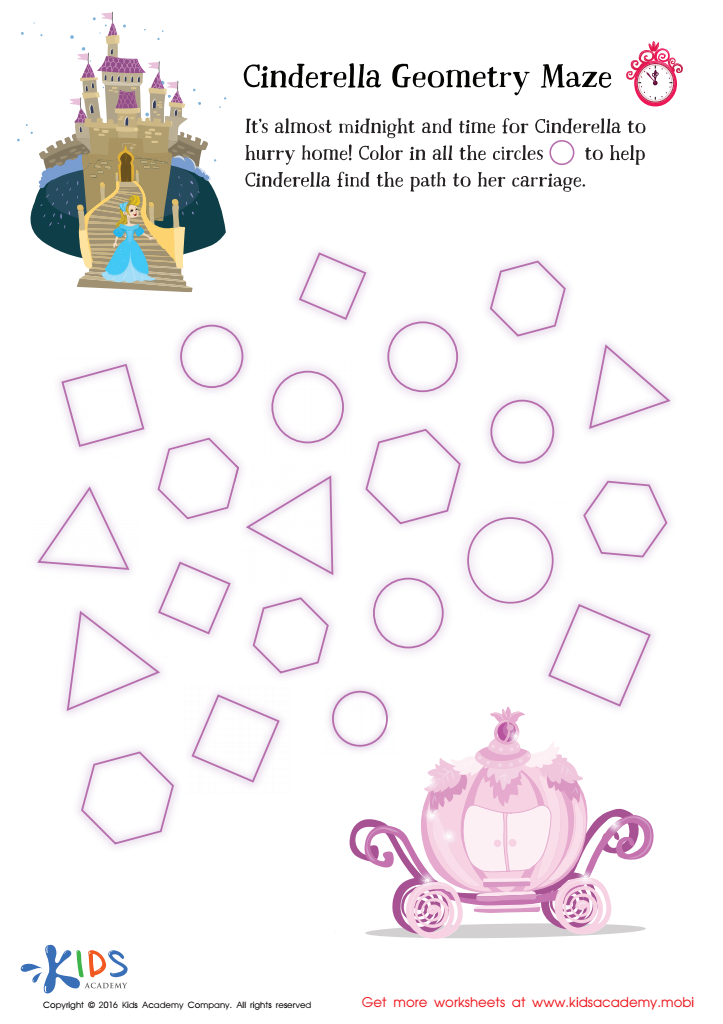

Cinderella Geometry Maze Worksheet
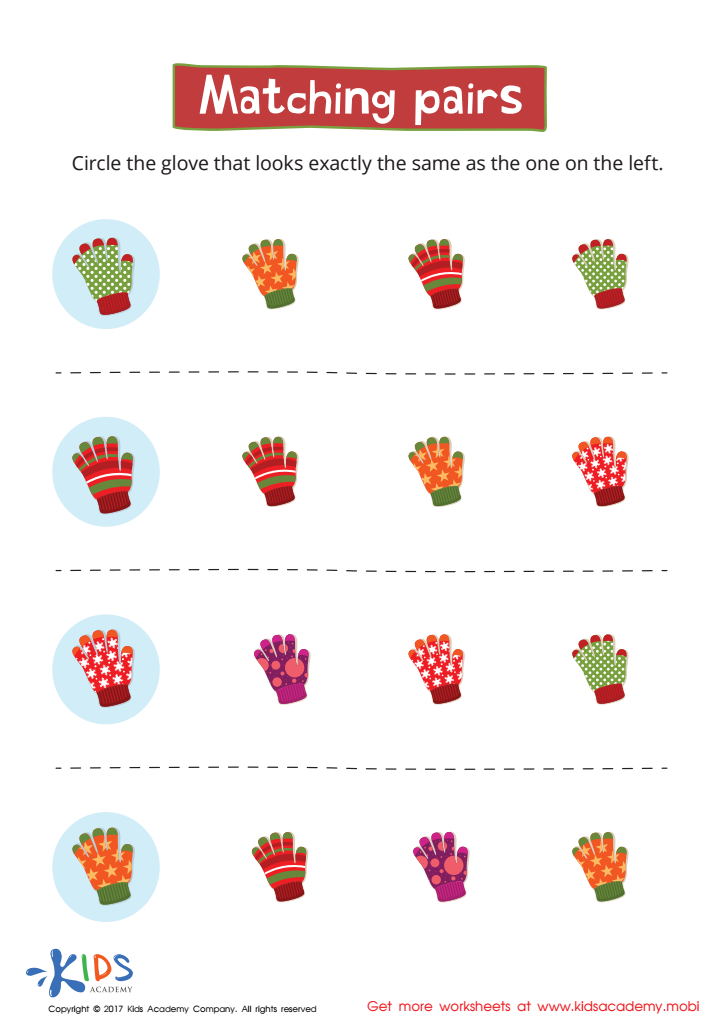

Matching: Matching Pairs Worksheet
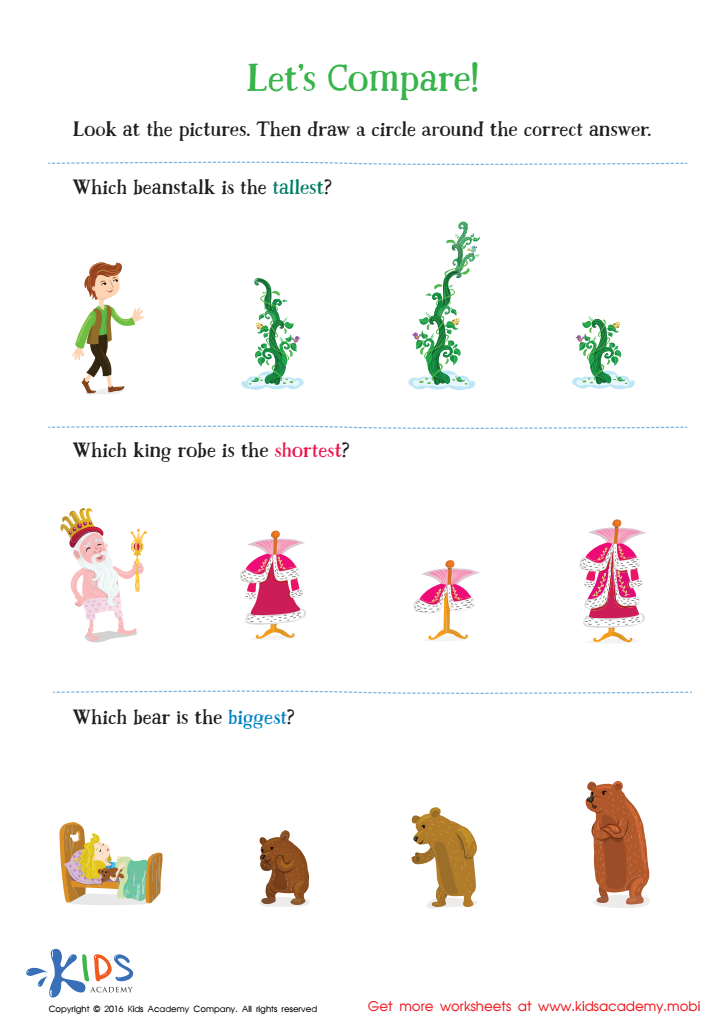

Fairy Tale Worksheet: Let's Compare
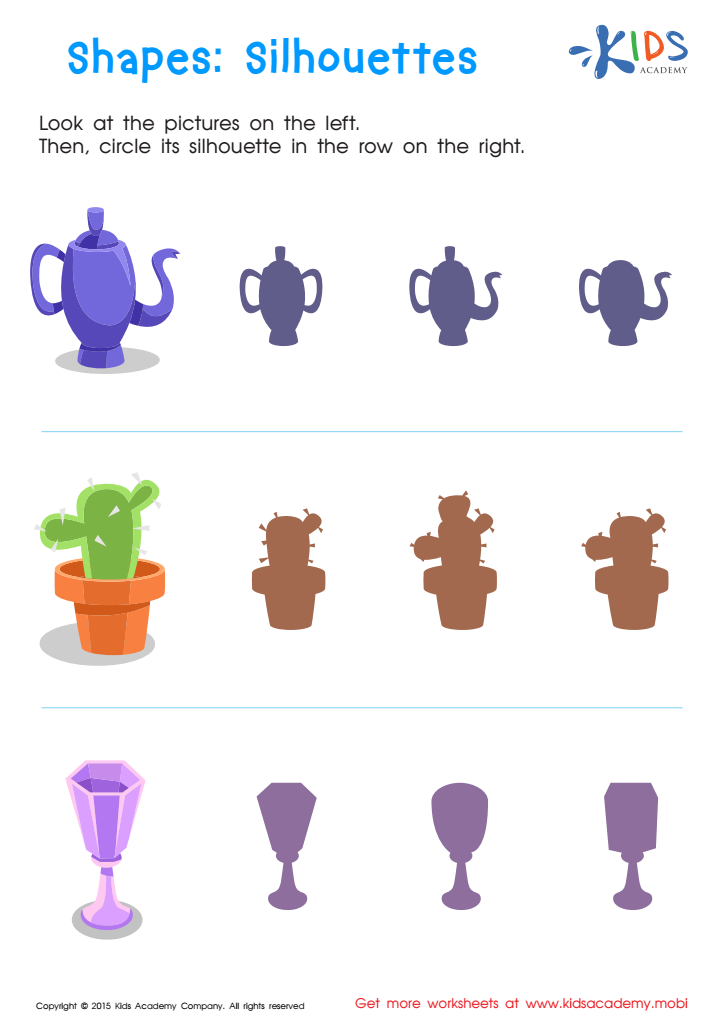

Silhouettes – Shapes Worksheet
Shape recognition and matching are essential skills for children aged 5-9, crucial for their cognitive, social, and emotional development. First and foremost, these skills lay the foundation for more complex mathematical concepts, such as geometry. By recognizing and matching shapes, children develop spatial awareness, which is vital not only in math but also in everyday tasks like navigating their environment and organizing their belongings.
Moreover, engaging in shape recognition activities enhances critical thinking and problem-solving skills. As children differentiate between shapes, they learn to analyze scenarios and make decisions, essential capabilities that extend beyond academia. Socially, these activities can be easily turned into engaging group games, fostering teamwork and communication as children collaborate to complete tasks together.
Additionally, shape recognition improves fine motor skills through hands-on activities like cutting, drawing, and assembling shapes, aiding in overall physical development. Finally, as educators or parents reinforce shape matching through playful methods, enthusiasm for learning is ignited, creating a positive association with academic challenges. Therefore, prioritizing shape recognition and matching not only prepares children for future learning but also cultivates important life skills, making it a vital focus for parents and teachers alike.
 Assign to My Students
Assign to My Students

